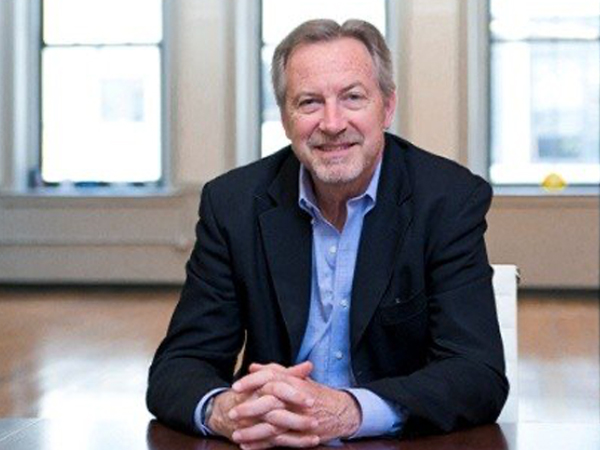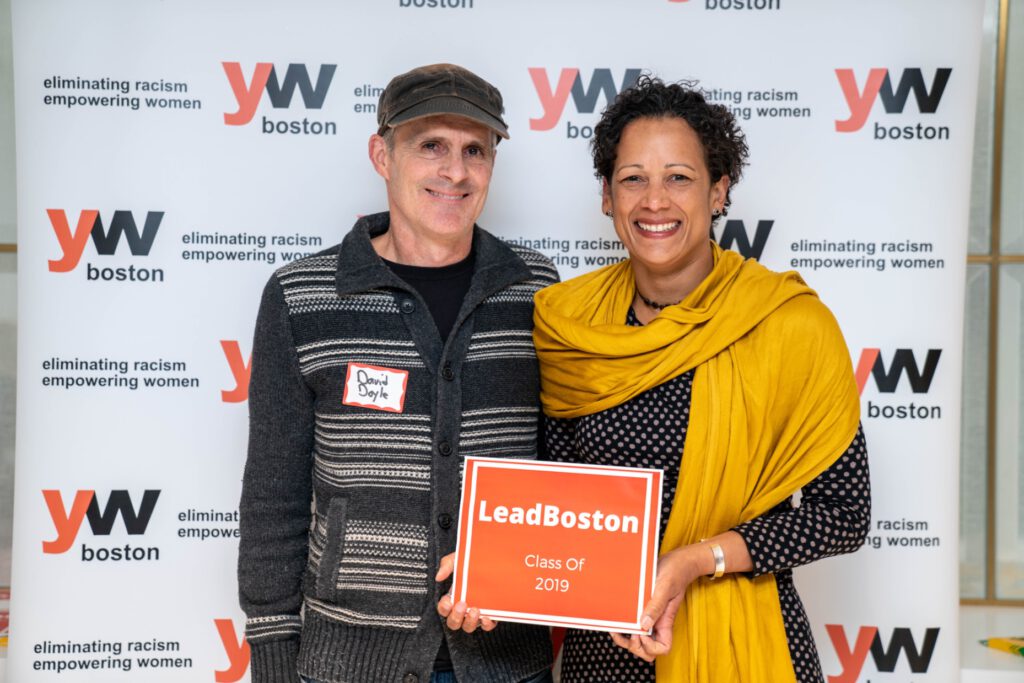
March 31, 2020
Diversity and inclusion: An imperative for all competitive business leaders
Across all industries, we are seeing more and more business leaders and executives prioritize Diversity, Equity, & Inclusion within their organizations and beyond. After all, businesses both impact and are impacted by inequities and socio-economic forces. Business leaders must center DE&I in order to thrive in our increasingly diverse markets. YW Boston sat down with President & CEO of Paradigm Properties and Founder of Building Impact, Kevin McCall, and discussed his LeadBoston experience and why it’s so important for business leaders to prioritize DE&I. Kevin graduated from YW Boston’s LeadBoston program in 1994, and his participation inspired him to launch an initiative that would later evolve into the nonprofit Building Impact.
What motivated you to apply to LeadBoston?
Kevin McCall: Well, LeadBoston, let’s see. The first LeadBoston class I think was ’91. So, [LeadBoston] had just begun and I was approached by the then CEO of the Greater Boston Real Estate Board, Andy Hickey, whom I didn’t know that well, but he had identified me somehow as someone in the real estate industry who might be interested in participating in the LeadBoston program. I was crazy busy that year and decided to pass. But I had the thought planted in my head that this was something I should do. And I applied for the next year and was fortunate enough to be accepted into the program. I wanted to be more of a part in the community and figure out a way to be more engaged in the community than I was figuring out on my own. And I found that the LeadBoston program was a great opportunity to do that.
Is there a LeadBoston program day that stuck with you in particular?
KM: That’s a great question because I think every program day resonated, for sure. I think one that hit me the most was our first day. And at that time, the way the program worked was that you got on a bus on the first day and you ride around the city on a bus. Being in the real estate business, I knew the city pretty well, not just the downtown, but the neighborhoods, reasonably well. But a number of our class members had never been in the neighborhoods and so their perception of some of the neighborhoods were driven by the perceptions one gets from listening to the news and reading the papers. And they were pleasantly surprised to learn things about the neighborhoods of Boston that contradicted those perceptions.

How did your leadership style evolve as a result of LeadBoston?
KM: The great thing about the LeadBoston program for me was that it just opened my eyes to a lot of issues in the city, a lot of challenges in the city, and gave me a great network of relationships that have carried on to this day, many of them. The impactful thing about the program as it relates leadership is that, we increasingly, you know it’s been 25 years since I went through the program, and we increasingly understand as leaders in any capacity, whether it’s business or other capacities, that we have to take perspectives of all of the people that we are connected to into account. That sounds easy to do, but LeadBoston trains you to do that. And it gave me that insight and that perspective.
That has been very important to me in both my for-profit business and nonprofit community leadership roles over the years. We, over time, have evolved the program at Building Impact and really have learned, and this is a direct function of my experience in LeadBoston, that if you want to move the needle you need to work with the best nonprofits. And that doesn’t necessarily mean the biggest. We work with a lot of smaller nonprofits who are really capable and effective at carrying out their missions, and we wanted to “feed” them, if you will, with resources, people and other resources, so they can make progress and achieve their missions.
Why do you think it’s important for business leaders to focus broadly on equity issues beyond their own industry?
KM: The first thing that comes to mind is flashing back to Bob Fraser, who was a long-time managing partner of Goodwin Procter, the law firm, and a board member and Board Chair at NCCJ, back in those days in the nineties. And he was a huge fan and supporter of the LeadBoston program from its roots. And there was always a Goodwin Procter attorney in the class for many years. I hope they’re still sending somebody. And he used to say, “I’m in this for altruistic reasons, but I’m also in this for self-interest. It’s good for our firm. The members and lawyers who go through the LeadBoston program come back to the firm with a much better perspective, not only on the city, but on how to operate within the firm. And that’s only going to be good for Goodwin Procter.” Now, I’m not one who wants to focus overly on the enlightened self-interest component of it. I think there’s a certain moral obligation that we all have that should be leading the way, but those things play together effectively. And I think to be an effective leader of an organization in today’s environment, you better be thinking about equity and inclusion because if you’re not, you are going to be left in the dust.
Who do you think should apply to LeadBoston and what would you say to someone who is considering it?
KM: Well, I think LeadBoston can only help anyone. I would be supportive of anybody who considers the program. And, I actually put it more on the leaders of companies and organizations to support LeadBoston by sending their team members through the program because, as I said as often said by Bob Fraser at Goodwin Procter, once you’ve gone through the experience, you come back to the organization with such a rich perspective and greater understanding on how to deal with issues of diversity, equity, and inclusion, which we all acknowledge are increasingly important, and recognize as important to effectively lead organizations and cities.
[To participants] I would say… be a sponge. Approach every opportunity that you have in the program to learn something from the people that you’re interacting with, both your class members and others that you’re interacting with, because it will be an incredibly valuable experience. And I think in terms of social justice, I am so happy that the LeadBoston program ended up at YW Boston because I can’t think of a better place in the city for that program to reside because, as I said to Sylvia [Ferrell-Jones, former President & CEO of YW Boston] before she passed and continue to say to Beth [Chandler] and others, I think YW Boston is the leading social justice organization in city, not just because of LeadBoston, but certainly enhanced by that program. And I’m glad that it has the visibility that LeadBoston brings to it because YW Boston is doing great work across all of your programs and LeadBoston is really helping spread the word.We wish to thank Kevin McCall for his time and for sharing his LeadBoston experience with us.
______


